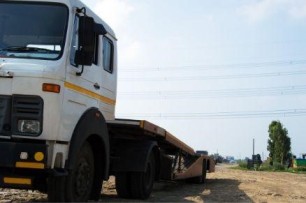General Insurance Blogs, Articles & Updates by - Magma HDI
Have us call you
- RENEW YOUR POLICY
- BUY NEW POLICY

Everything you must know about ecotourism and how it is gaining pace in India
India is a diverse country with rich history, culture, and traditions, making it a worthy place for tourists. The tourism industry of India has been booming in the last couple of years and is marking a strong comeback post-pandemic. People from far and wide are visiting the country to witness its beauty, elegance, and charm. From the grand Taj to the charming little town of Darjeeling, India receives immense tourism every year.
The travel sector in India is upgrading itself to satisfy the changing requirements and interests of travellers. One such emerging aspect is ecotourism. Ecotourism is one of the growing segments of tourism in India. If you want to know more about ecotourism, this article is for you.
When embarking on an ecotourism journey, ensure that you prioritise your safety. And you can achieve this by purchasing online general insurance to add a safety net to your travel.
What is Ecotourism?
The main objective of ecotourism is to focus on mother nature and promote the ecosystem's sustainability. It facilitates a healthy relationship with nature and its elements to ensure that tourists spend more time preserving the environment. It promotes sustainable activities that are mostly outdoor and prohibits any action that can harm the environment.
Why is Ecotourism gaining pace in India?
India has a diverse variety of flora and fauna and is home to several zoological parks, wildlife sanctuaries, national parks, biological reserves, and botanical gardens. The country has been able to save its natural beauty till now.
With ecotourism, it aims to do it further by maintaining and promoting sustainable activities not only in wildlife sanctuaries but also in high mountains, and lush green valleys.
What are the advantages of Ecotourism?
In a naturally rich country like India, ecotourism is an ever-growing tourism segment. It also encourages plenty of other natural initiatives that contribute to the well-being of the ecosystem. The several advantages of eco-tourism are:
● The sole preservation of flora and fauna
● It generates awareness about the tribal communities and brings them into the limelight
● It is a significant platform for raising awareness about social and environmental issues in a particular area
● It is a great field for generating revenues. The revenues earned here can be utilised in the development of the country
● The remote and lesser-known areas of the country are developed under eco-tourism
● Tourists are made familiar with the diverse species of flora and fauna thriving in the country
● Tourists spend more time outdoors with nature and communities
● It develops a loving relationship with nature
Ecotourism is gaining momentum rather quickly in India. In the coming years, you can expect it to emerge as a pivotal activity that preserves the heritage and maintains sustainable tourism at local destinations. If you're a nature lover or love exploring the unknown, then ecotourism will greatly benefit you. You can undertake many activities, including trekking, camping, cycling, hiking, bird watching, wildlife photography, and farm stays, among others, to feel one step closer to nature's unmatched beauty!
You must understand that safety is paramount regardless of the destination you go to for your next ecotourism vacation in India. You can achieve this by investing in an online general insurance plan that caters to all your travel safety needs.
Click HERE to buy an online general insurance policy.
Disclaimer: The information provided above is for illustrative purposes only. To get more details, please refer to policy wordings and prospectus before purchasing a policy.

Let's understand the difference between the policy of homeowners and renters
Owning a house is a lifelong dream for most, but it comes with its own set of challenges. Analysing the market, arranging the funds, making remodelling decisions and getting house insurance takes a lot of time and research. However, renting a house is no picnic either.
Looking for the perfect house, checking out the neighbourhood, ensuring safety, inspecting the amenities, budget, shifting, agreements, meeting the landlord, etc., are significant factors that need to be considered before making a final decision.
Whether you are a homeowner or renter, you need to get insurance. Owner's and renter's insurance have different terms and conditions, and the policies are structured accordingly.
Are you confused between the two and find it challenging to figure out their differences? Let's understand the difference between the policy of homeowners and renters with specific pointers to help you find a suitable policy for you.
1. Coverage:
While homeowner's insurance covers the building, garage and other structural amenities, the renter's insurance covers your personal belongings and property. The landlord is supposed to have insurance cover for the building.
2. Coverage cost:
The homeowner's insurance covers the cost of your home in case of a complete loss. Additionally, it also covers personal property like jewellery, appliances, apparel, etc., that gets damaged or becomes completely irretrievable due to the circumstances. On the other hand, renter's insurance only covers the replacement cost for your lost or stolen possessions on the property. It does not cover any damaged or destroyed possessions.
3. Price:
Given the coverage, it is understandable that renter's insurance is cheaper than homeowner’s. This varies due to the renter's insurance's limited scope as compared to the homeowner's.
4. Factors that are considered:
The factors that decide the price of the homeowner's policy include the type of property, the amount of personal property you need coverage for, location, etc.
For renter's insurance, the amount of personal property coverage and the area you live in are considered essential factors determining the price.
5. Other liabilities:
Homeowner's insurance incorporates personal liability coverage. This covers the legal fees if someone gets injured on your property. The homeowner's and renter's insurance cover living expenses if you need alternative accommodation solutions due to house damage, disasters, fire, etc. If you or someone else gets injured in your home, your insurance will cover their medical expenses too.
6. Which one do you need:
Renters need to verify that they get renters insurance, medical coverage and a personal liability policy. Several homeowners take renters insurance to avoid further hassle and disputes about financial loss.
In the case of renting out your property, you need to ensure that the homeowner's insurance has adequate coverage and doesn't lead to any confusion or disputes. You can always check with your insurance agent before renting out your property, whether it's a small space or a lavish villa.
Insuring your home is paramount. Never skip on the benefits that home insurances offer. Browse through different plans and purchase the best house insurance India. Make a smart investment, and rest assured.
Click HERE to know more about house insurance India.
Disclaimer: The information provided above is for illustrative purposes only. To get more details, please refer to policy wordings and prospectus before purchasing a policy.

Here are a few tips for maintaining commercial vehicles
Maintaining commercial vehicles like trucks, carriers, tempos, cars, etc., can be challenging at times, but it is common knowledge that regular maintenance ensures a longer lifetime of vehicles. And missing out on these services will result in expensive repair works that can put a load on your pocket.
Hence a wise option is to follow a regular maintenance regime for your vehicle and invest in motor insurance that provides several benefits while also helping you stay on a budget.
Today, we'll look at ways to ensure your commercial vehicles stay in their best shape.
1. Keep a vehicle checklist:
Since various drivers use and drive commercial vehicles, maintaining a checklist is a good idea. This will ensure that each driver is reminded to check fuel levels, tyre pressure, brake systems, and batteries before making a trip. After the initial check is done, they will know all the shortcomings and fix them before departure.
2. Change engine oil:
Since the oil in heavy commercial vehicles can be spoiled by dust and small dirt particles, it is advisable to change it regularly. Polluted oil can affect the optimal functionality of vehicles and cause various issues during the trip that will be expensive to fix. The oil filters should also be changed frequently to avoid an accumulation of dust and other residues.
3. Engine maintenance:
Excessive smoke, decreased power, and loss of oil pressure are a few indicators of engine failure. Ensure that the engine goes through professional checks to identify any additional defects. These procedures involve exhaust temperature, monitoring engine cooling, and boost pressure.
4. Inspect tyre pressure:
For the maximum value of tyres, keeping a check on the tyre pressure is non-negotiable. Commercial vehicles do not stick to one kind of road. They traverse various terrains to cover long distances and undertake multiple business operations. Inspecting the tyre pressure is the best way to increase the life of tyres. Another way of ensuring better health is by rotating the tyres before they wear out.
5. Keep the vehicles in the shade:
Keeping commercial vehicles away from the harsh climatic conditions when they're not under operation helps maintain their shape for extended periods. If garages and sheds are not an option, you can opt for vehicle covers. They also help in keeping the chassis of the vehicle clean.
6. Train the drivers:
Training the drivers in performing minor repair works can help you reduce maintenance costs in the long run. Conducting drills on maintaining the vehicle and dealing with emergencies as a team can help them understand basic procedures and share ideas and tricks.
Compensating your drivers for putting in extra work, providing health insurance, and good living quarters is an excellent way to ensure that the drivers are well-rested and taken care of. This way, they are less likely to cause accidents.
These were a few ways to ensure the better health of your commercial vehicles. Owning a business that includes commercial vehicles comes with its own set of challenges, but regular upkeep and servicing can ensure reduced cost and investment in the long run.
Do not forget to invest in motor insurance, as it will add value to your service by providing a safety net against all expenses in an unprecedented situation such as accidents or machine failure.
Click HERE to know more about motor insurance.
Disclaimer: The information provided above is for illustrative purposes only. To get more details, please refer to policy wordings and prospectus before purchasing a policy.

Following are the five common home insurance claims that homeowners usually make
Every homeowner must invest in home insurance to rely upon in case of unforeseen events. It secures not only your house and its belongings but also the residents. Whether it is due to weather-related damages, unforeseen break-ins and theft, or unfortunate fires, a reliable home insurance plan can efficiently help you through these challenges.
The percentage of homes insured in India remains significantly low at a mere 1% compared to the U.K, U.S, Australia, and France, which stand at 97%. Indians still need to realise the importance of home insurance and its benefits in securing lives and properties.
While it is vital to invest in the best home insurance plan, knowing if it covers all your requirements is equally essential.
Let's look at the most common home insurance claims that homeowners usually make.
1. Fire inside the house:
Some of India's most common home insurance claims are registered for unforeseen fires. A fire can take place anywhere, anytime. Overheating of appliances in the summer heat and sparking of electric wires due to poor insulation are often the sources of fires inside the house. The interiors of a home are filled with various materials, like wood, that can quickly catch fire. These fires can be controllable only if detected in time. But, if not, they can cause irreversible damage.
2. Fire on the home property:
While fires inside the home can cause significant damage, fires on the entire residential property can be disastrous. Fires caused by gas leakages, water leakages into electric circuits, short circuits, etc., can threaten the whole structure of the house. Homeowners' losses due to these fires are overwhelming and are commonly filed as home insurance claims.
3. Break-ins and theft:
Break-ins and theft have become a common occurrence that several people nationwide complain about. Even with the most advanced, complex, and dependable security systems, thieves break in and steal valuables in the wee hours of the night. Troubled homeowners frequently seek insurance claims concerning the damages caused by these break-ins in their property.
4. Landslides and Flooding:
Many states in India face natural disasters such as landslides and flooding. These natural tragedies are another common reason for filing a home insurance claim. While the coastal areas face annual flooding, the hilly regions of the country witness frequent landslides during monsoons or deforestation. These natural disasters cause heavy damage to the properties. In such cases, home insurance plans can help manage the recovery of financial losses.
5. Man-made disasters:
While natural catastrophes cause enough property damage, human negligence can cause just as much damage. Failure of homeowners or the people living around them can threaten the home or property. Water leakage, using low-quality products, improper care of the property can destroy not only your own home but also of your neighbours.
The above are the most common home insurance claims filed by homeowners. Sudden natural or man-made events can cause significant damage to your home and life. While we can be as cautious as possible, there are unforeseen events that we cannot escape.
Investing in home insurance India secures your future from unpredictable events that can cause severe damage and losses. Stay free from the monetary stress and add value to your priceless possessions with the safety net of the proper insurance to receive good returns on your investment!
Click HERE to buy reliable home insurance India.
Disclaimer: The information provided above is for illustrative purposes only. To get more details, please refer to policy wordings and prospectus before purchasing a policy.


